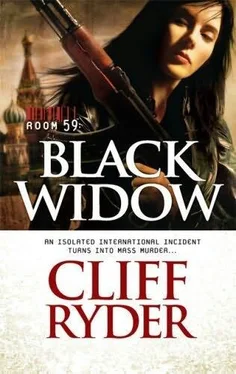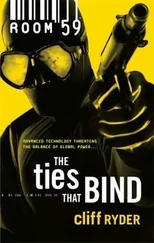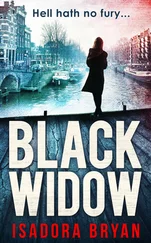You can't save everyone. That had been one of the first rules she'd learned at MI-6. Save yourself, then save as many others as you can. She steeled herself and remained in control.
Body odor, mildew and stale air filled the building. Ajza was certain that at one time animals had been kept in the structure. She knew some of the rural people brought their livestock into their homes with them during the harsh winters because in their meager personal economies, the animals were irreplaceable.
A few of the women and children gazed at Ajza as she entered the building. Most refused to make eye contact. The women's youth bothered Ajza most of all. Even though she'd been prepared for their young age, she was amazed that most of the women here were in their teens — some in their early teens.
In London, at that age, Ajza still considered herself a child.
"Here," the woman showing her around said. She pointed to a cardboard box filled with clothing. "Dry clothes. They belong to no one. Take what you want."
The choices looked meager, but Ajza thanked the woman all the same. The woman looked at Ajza warily, then turned and walked away.
Ajza selected a pair of pants and a blouse, then a scarf to cover her head. She gazed around after she'd made her choices.
One of the women pointed to a back room. "In there."
Only a sheet hanging across the room provided privacy. A shadow settled onto the window across the room, and a moment later Ajza spotted a bearded man's face. His gaze locked with hers and he didn't turn away.
"They have no shame." The woman who had pointed the way stood in the doorway. She stared at the man peering through the window. "They keep us here and treat us worse than dogs. There is never a moment we are alone." She paused. "Or safe."
Ajza almost said she was sorry, then caught herself before she could slip out of character. She couldn't talk as if she had any other future than the bleak one presented at the camp.
"Their mothers should have drowned them at birth," the woman said.
"Is there no escape?" Ajza asked as she pulled on the fresh clothing.
"Even if you got away from this place, where would you go? No one wants to take on the hardship of caring for a woman who isn't family. There is only death." The woman's features were almost painfully empty. "You can die here or you can die where they tell you to." She shook her head. "If I were brave, I would kill myself rather than spend another day here or wait to go blow myself up."
"God is merciful," Ajza said. The phrase came naturally. Her parents often told her that.
"If you believe in God a few days from now, after what those men are going to do to you, I will be very surprised," the woman said.
Moscow
Red Onion Interactive Games occupied a suite of rooms in one of the boxy buildings along Tverskaya Street. Pushkin Square had been busy even before the fall of communism, but now that the city's inhabitants had embraced capitalism and allowed foreign investors, business in the square had swelled.
By nine in the morning, the economic surge was in full swing in the retail areas and offices. Later that afternoon, the entertainment bars would open.
Sergei parked on the street and tossed the identification placard on the dash so the car wouldn't get towed. Mikhalkov led the way toward the office building.
Anton Pasternak was a silent partner of the Red Onion video-game company. The Mafiya leader was old enough to see the value in legitimate investments and young enough to recognize the impact video games had in the marketplace.
Sergei stifled a yawn. He and Mikhalkov had spent the night searching for Pasternak. They'd hit all of Pasternak's usual haunts and tried not to make themselves too obvious. That had been almost impossible.
"Do you not think it is odd that Pasternak has been so elusive?" Despite the No Smoking signs, Mikhalkov lit a cigarette as they went up in the elevator.
"Should I?" Sergei asked. "Pasternak stays out of the public eye."
Mikhalkov shrugged. "He has been most difficult to find. I find that…interesting."
Now that the old man had sharpened Sergei's own self-preservation instinct, Sergei thought it odd, too. He dropped his hand to his side and made sure his pistol was in its holster.
"We have not pressed too hard to find him." Sergei watched the floor-level indicator escalate. "But we also haven't hidden our identities."
"The people Pasternak does business with can smell police." Mikhalkov took a deep drag of his cigarette, then released a cloud of smoke. "I think Pasternak was already in hiding before we started looking for him."
"Hiding from whom?"
"Emile IvanoVs meeting a harsh end sent a message. Given that he was working with Pasternak, we have to assume the message was for Pasternak."
"The message could have been for Kirinov."
"Possibly. But Pasternak was here to receive the message. Kirinov was not in the country." Mikhalkov stood in front of the elevator doors as their ascent came to a halt. "Perhaps the message was to bring Kirinov here. Perhaps the message was solely for Pasternak. Either way, I believe Pasternak fears for his life."
"We could offer him protection. In exchange for information. Maybe he will be glad to see us," Sergei said.
"A man like Pasternak is never glad to see the police." Mikhalkov stepped through the open elevator doors.
Sergei followed.
"Welcome to Red Onion Interactive," the young woman behind the desk said. She was small and pert and wore a clinging emerald blouse that showed impressive cleavage. "How may I help you?" She smiled, showing a lot of teeth.
With his pistol in his fist beneath his jacket, Sergei stood behind Mikhalkov. Security cameras hung in the two corners of the room monitoring the door.
The sleek sparkling furniture was evidence of success. Posters on the walls displayed colorful characters and game boxes. Sergei recognized some of them. He sometimes played video games with his brother's sons.
"I need to see Anton Pasternak," Mikhalkov said.
The receptionist frowned. "Is he an employee?" She turned her attention to her computer screen and hit a few keys. "Are you sure he works here?"
Mikhalkov took his pistol from his jacket pocket. The receptionist gave a frightened squeal and cowered under the desk.
Sergei swept his pistol out from under his jacket. He felt nervous about pulling weapons so early, but Pasternak was not a man to take chances with. Two quick steps to the right put Sergei in a clear field of fire. A chill shot through him as he waited to see what would happen.
Mikhalkov took out his identification and held it up to the security cameras. He identified himself in a strong, clear voice. "I want to see Pasternak now or I will arrest everyone in this office."
For a few seconds nothing happened. Then the door to one side of the receptionist's desk opened. Sergei lifted his pistol, turned in profile and took aim at the man standing there.
"Mikhalkov?" Tall and heavy-set with a bald head and a short, sculptured beard, the man looked like a thug. The obviously expensive tailored suit he wore only added to the effect.
"Pasternak." Mikhalkov kept his pistol in his fist.
The big man smiled and gold gleamed in his teeth. He'd had a lot of work done. "It has been a long time."
"You have learned to be more evasive," Mikhalkov responded. "And there are many other criminals in Moscow these days."
"I am no criminal here." Pasternak waved at the office. "Here I am just a businessman. But come in. We can talk in private."
Instead of being in private as Pasternak had promised, he led Mikhalkov and Sergei to an office where two quiet and deadly-looking young men joined them. They wore jackets that covered what Sergei believed was an arsenal of guns. They dressed like Americans, but the black tattoos they'd won in prison and in the Mafiya showed at their wrists and necks. Sergei had no doubt that their bodies were covered with tattoos that mapped what they'd done and where they'd been.
Читать дальше
Конец ознакомительного отрывка
Купить книгу












